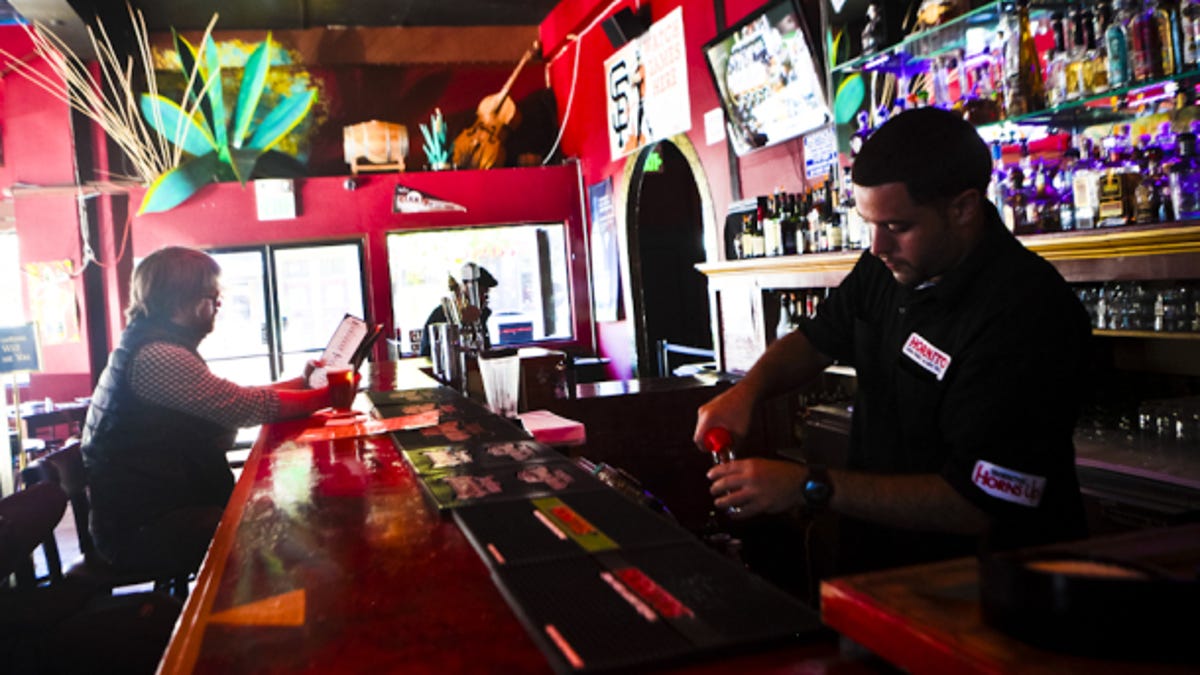The lost prototype iPhone a year later: Can Apple keep a secret?
There's no shortage of blogs claiming to possess photos, video and 3D renderings of the unreleased iPhone 5. The good news for Apple is it doesn't appear to have misplaced any prototypes lately.

News about the upcoming next-gen iPhone isn't leaking. It's gushing.
There's been no shortage of unconfirmed reports in recent weeks purporting to detail Apple's next iPhone inside and out. Apple is expected to unveil the device next month.
We've seen supposed photos of replacement screens for the phone. Numerous gadget blogs have claimed to possess photos, videos and even dazzling 3D renderings of major phone parts. Apple, of course, has confirmed nothing, but already it feels like we've seen every angle of the unreleased product. We'll have to wait to see if the rumors are true.
But in one important area, Apple seems to have improved its ability to protect company secrets. During the past year, Apple doesn't appear to have misplaced any phone prototypes.
That's something of an accomplishment for the typically secretive company, which lost control of two experimental phones between March 2010 and July 2011. The first incident involved an Apple engineer losing control of a handset in a German beer garden in Redwood City, Calif. That story was first reported by Gizmodo. News that Apple had lost a second unreleased iPhone in a San Francisco tequila bar in July 2011 was reported a year ago today by CNET.
These were pivotal events for Apple in that they undermined the company's reputation as a place that knows how protect trade secrets. Apple's response to each situation also generated controversy. With the first lost iPhone, Apple accused Gizmodo of acquiring stolen goods after the gadget blog paid $5,000 for the device from a man who said he found it at the beer garden.
In the second incident, Apple security personnel tracked the lost device to a home in San Francisco's Bernal Heights district. With four San Francisco police officers standing by, the Apple employees searched the house. Critics said that Apple's actions showed that managers would stop at nothing, even trample over the rights of private citizens, to safeguard secrets.
The phone wasn't recovered at the Bernal Heights home and what happened to it is unclear. A year later, we decided to circle back to see if there were any new developments in the case.
Both incidents happened under the watch of former Apple CEO Steve Jobs, who died last October. Jobs had built an extensive security structure for the company. It was members of Apple's security unit who went after the iPhone prototype lost last year by an Apple employee at Cava 22, a San Francisco tequila bar.
Two Apple security employees, and the four SFPD officers who escorted them, tracked the phone to the home of San Francisco resident Sergio Calderon. Later, Calderon said in interviews that he was led to believe that all six people who visited him that day were policemen, and he never would have allowed Apple employees to search his home had he known they weren't police.
Later, Calderon and his attorney threatened to sue Apple and SFPD, but a lawsuit was never filed and not long after rattling their sabers about a lawsuit, Calderon and his attorney stopped talking to the media about the case. Yesterday, Calderon and his attorney declined to comment on whether they still had plans to file the suit, or if they had reached a settlement agreement with Apple.
Initially, SFPD's Chief Greg Suhr defended his officers' actions, but the department still launched an investigation to see whether the four officers acted properly.
CNET has learned that the SFPD investigators found no improper behavior by the officers, according to sources close to the investigation. A police spokesman said yesterday that the department doesn't comment on personnel issues such as this.
John Theriault, a former FBI agent who came to Apple from Pfizer in 2007, was the man in charge of Apple's security unit at the time of the incident. Sources told CNET that he resigned under pressure last November. According to his LinkedIn profile, Theriault is now in business for himself.
Theriault declined to comment.
Anthony Colon, one of the two Apple employees who searched Calderon's home and left his business card with Calderon, suffered a brain aneurysm and died in May, records show. He had started at Apple just a few months before he was asked to track down the lost handset. Prior to that, Colon spent 26 years as a member of the San Jose Police Department, making it to the rank of sergeant.
Colon appears to have left Apple around the same time as Theriault. He was at the company for less than a year. He was 51 years old.
Colon's family and Apple declined to comment for this story.
As for how Apple's security will function in the future, it's hard to tell. When Theriault left, Jobs' successor as CEO, Tim Cook, appeared to be preparing a more casual approach -- some would say less paranoid -- than Jobs. But Cook has also said recently that under his watch Apple was "doubling down" on secrecy. So who knows.
We'll have to wait until the next iPhone debuts and see how many of the rumors were accurate to determine whether Cook can keep a secret.



